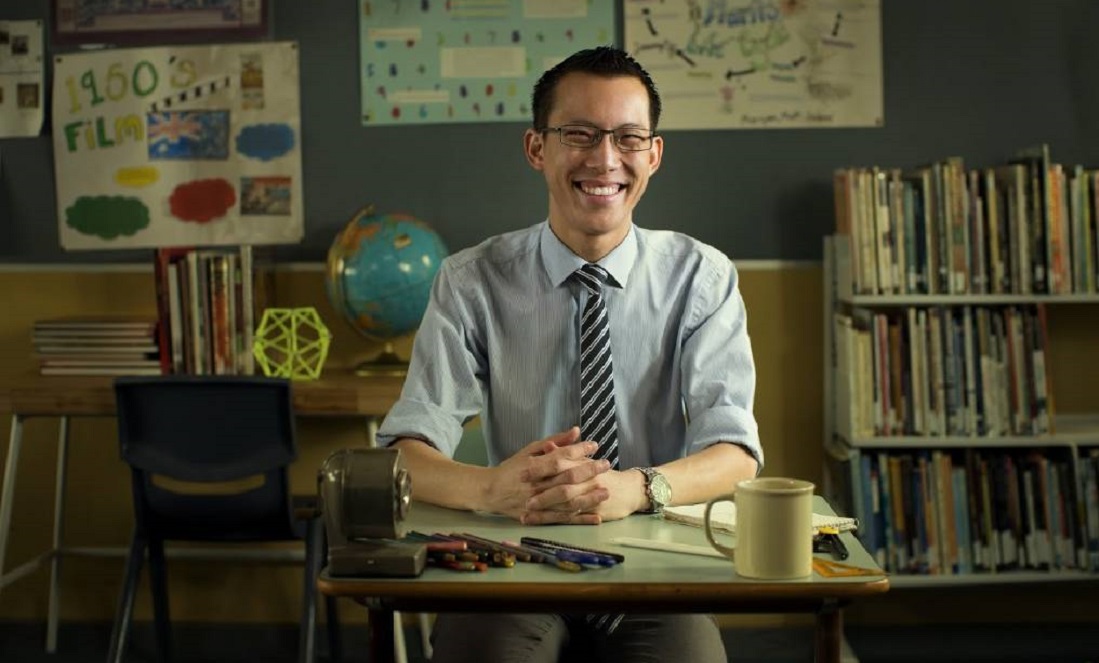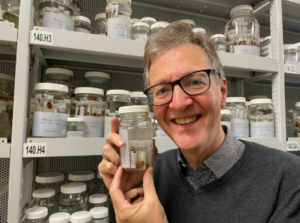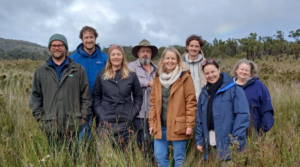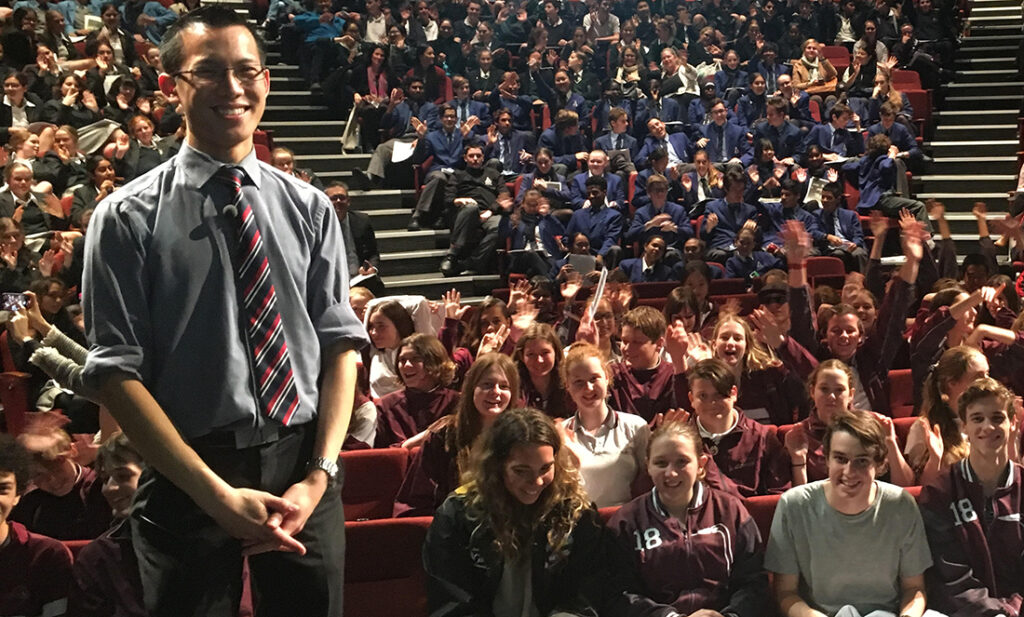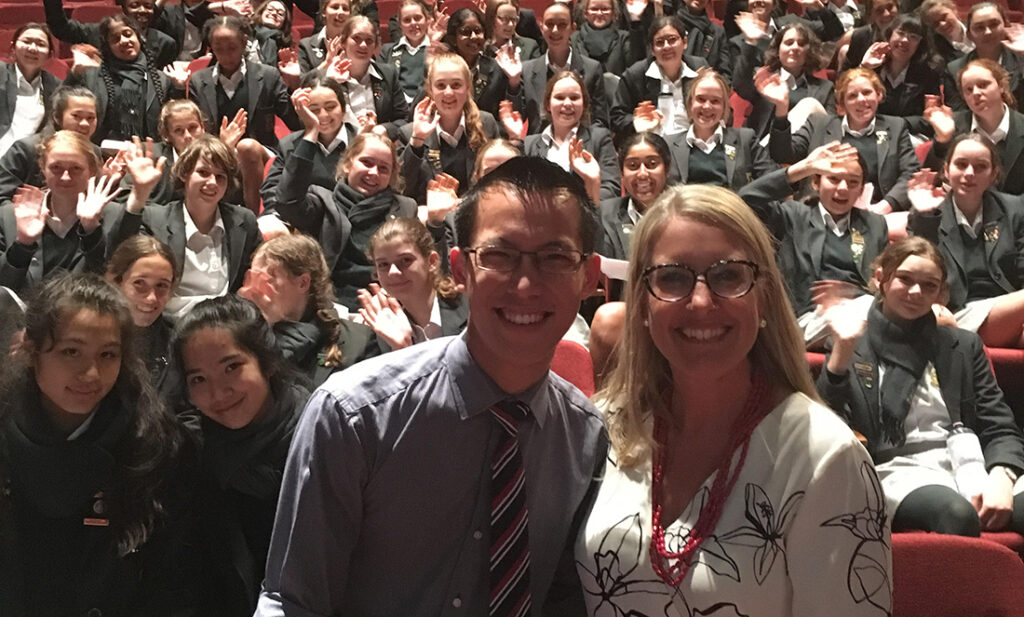Maths rock star Eddie Woo has a surprising admission—he’s never been naturally good at mathematics.
“In fact, mathematics is something I’ve always sort of struggled with,” he says.
“It is not the subject that I was best at at school. Those were the humanities that I was much more comfortable with.”
Today, Eddie is arguably Australia’s most famous maths teacher.
He came to love maths “late in life” and believes no one can use the excuse that maths isn’t for them.
In January, Eddie was named Australia’s Local Hero for 2018, and he’s on a mission to share his “love and joy” for maths with the world.
THE LANGUAGE OF PATTERNS
Speaking to Particle on a visit to Perth, Eddie says there’s an idea that you’re either a maths person, who’s naturally good at the subject, or you’re not.
Instead, he believes maths is for everyone.
“All human beings are wired to see patterns,” he says.
“If that’s the way we are, then mathematics being the language of patterns is something that belongs to everyone. And of course, it’s a wonderful tool for understanding and appreciating the world around us and also for solving complex problems.”

AN ALTERNATIVE TO MATHS TESTS
Eddie believes maths tests put too much emphasis on individuals.
Instead, he likes to set tasks that sees students work in teams to tackle a real-world problem.
His class might examine how GPS works or solve a waste or renewable energy problem.
“I think giving students that opportunity to engage in real-world learning that’s grounded in a context, is really important,” he says.
“And then to do that in a team where they then have to present their solution with mathematical justification and reasoning provided. It gives students a great opportunity to realise that mathematical communication is more than just writing symbols and drawing diagrams.”
TECH IN THE CLASSROOM
Eddie has become an unlikely celebrity off the back of his YouTube channel Wootube, which he started in 2012 for a sick student who couldn’t make his classes.
Today, the free channel has 200,000 subscribers, and his videos have been watched more than 12 million times.
Despite his YouTube fame, Eddie says technology should not be seen as a saviour in the classroom.
“Every day, there are new opportunities for how we can use technology to bolster our teaching and learning,” he says.
“But technology is not the solution to all our problems.”
“Good pedagogy, the understanding of how to work with students, develop rapport with them, ask good questions and develop that social connection with students—technology can help us do those better but the technology itself can’t do it.”
NEVER GIVE UP
Eddie’s main message for students is a simple one. Never give up on maths.
“One of the tricky things about mathematics is how interconnected and coherent all of its knowledge and skills are,” he says.
“That’s one of the most beautiful things about it, that it’s this tapestry of interlinked ideas, but it makes learning the subject quite challenging.”
Eddie says if you don’t know your times tables then you can’t successfully learn fractions, decimals and percentages.
You need those to learn trigonometry, and you need trigonometry to learn calculus.
“I’d really implore students to persevere and work on the gaps in their knowledge because it’s central to that understanding,” he says.
“And just be open to the fact that mathematics connects to every part of your life.”


